Breaking it Down – Butterflied Fish – Vermillion Snapper
Eugene L. 10.31.24

Vermillion Snappers(Rhomboplites aurorubens) are often overlooked by many anglers when bottom fishing for larger and flashier fish like red snappers and big groupers, but I feel that should not be the case. 10 decent vermillion snappers, also known as beeliners or mingos, is nothing to be looked down on. They have delicious white meat that is a bit delicate and flaky while producing a good yield for their weight, having a relatively small head compared to other snappers. The only problem with vermillion snappers is just cleaning all of them. So today I’ll show you how to break it down and make a nearly boneless butterflied fish out of a vermillion snapper.
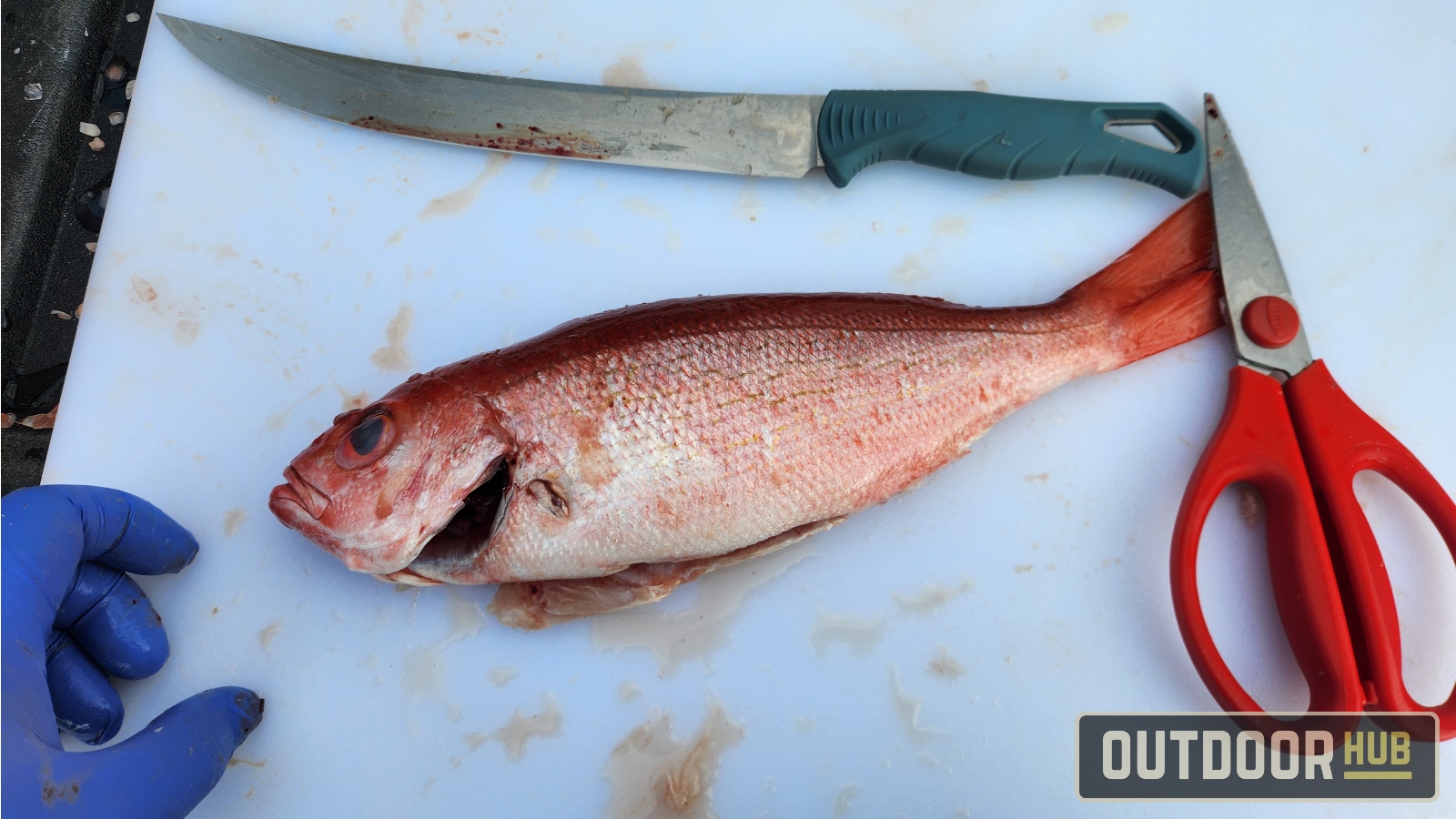
Breaking it Down on OutdoorHub
- Breaking it Down – Grouper Throats
- Breaking it Down – Grouper(Scamp)
- Breaking it Down – Wild Turkey Breast and Legs
- Breaking it Down – Mahi Mahi(Dolphinfish)
- Breaking it Down – Baked Garlic & Paprika Bluefish
- Breaking it Down: Whole Fried Dove
The first thing you need to do is gut out your vermillion snappers. I recommend doing that as soon as possible, preferably within a few hours of catching your snapper. This will make sure your catch stays as fresh as possible. this also helps draw out blood from the fish. After you got your fish gutted, take the head off in front of the collars. You want to keep the collar bones attached to help keep the fish intact as you butterfly the fish. Now with the head off, trim off the fins and then scale the fish.
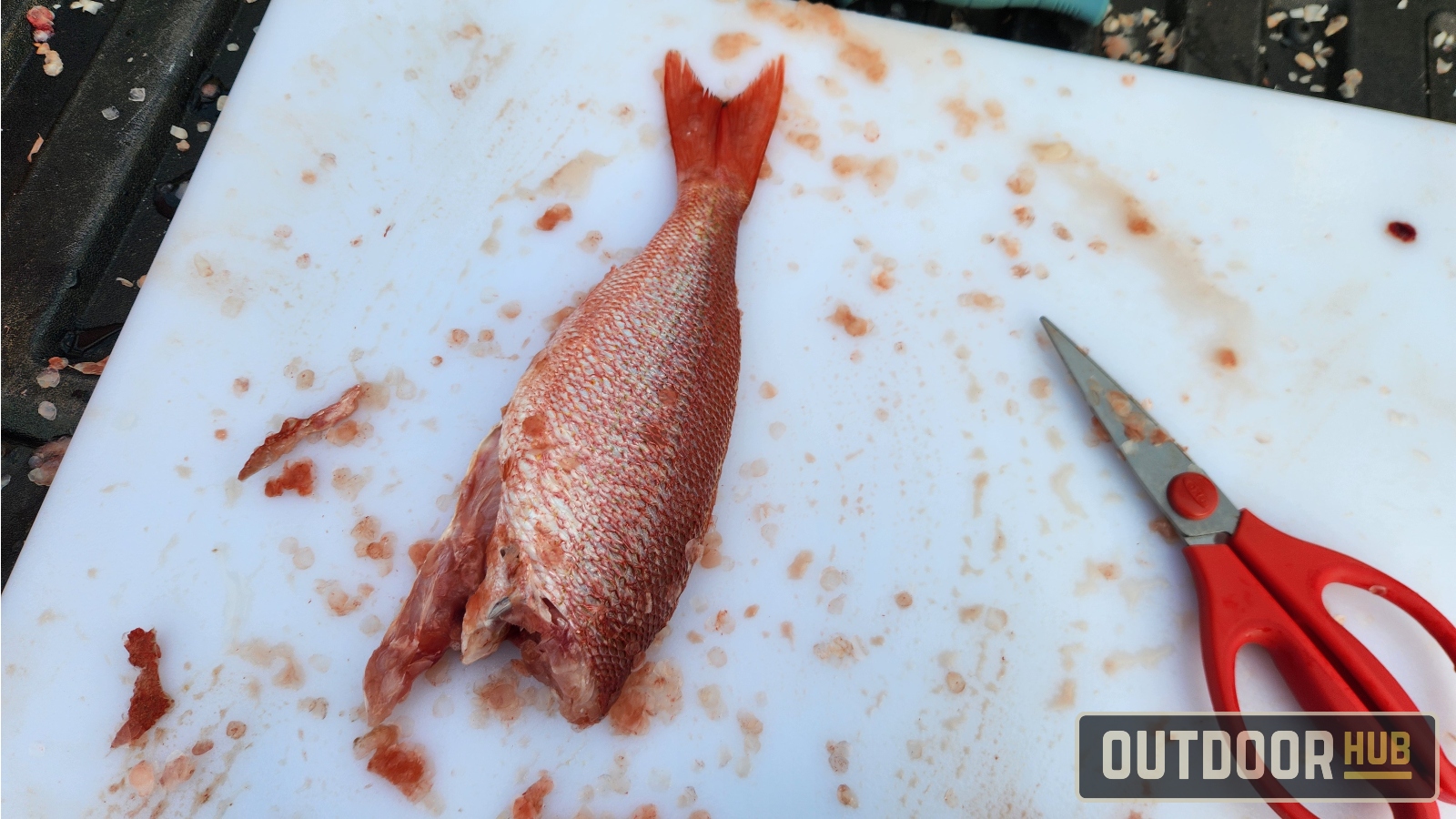
Give the vermillion snapper a good rinse to get rid of all the scales. Then take the back of your knife over the skin to just make sure you didnt miss any.
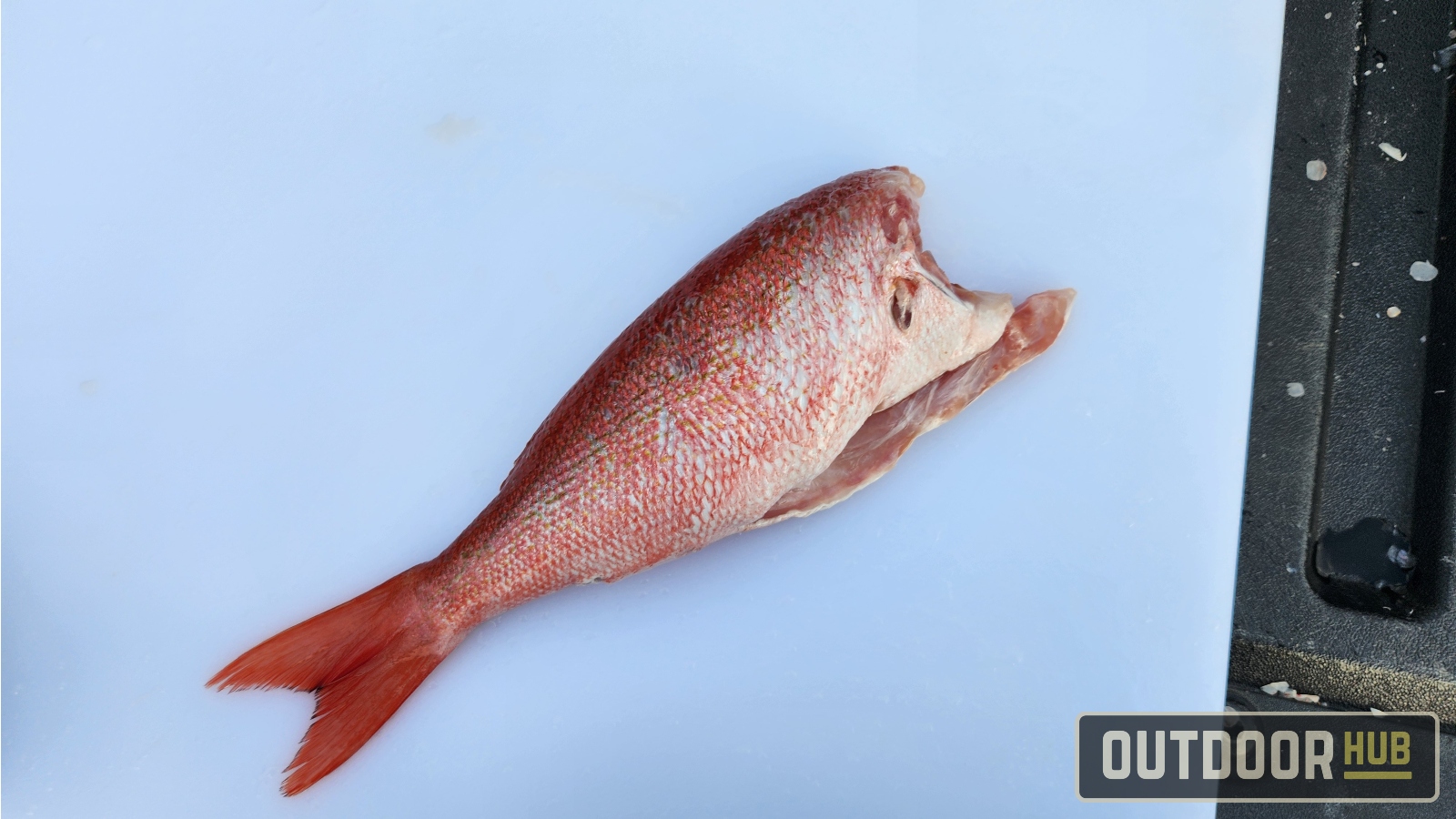
Now with your cleaned vermillion snapper, start cutting from inside the rib cage. Pushing your knife through the ribs and pin bones. Then follow along the spine all the way to the tail of the fish. You are pretty much filleting the fish backwards, but you do not want to push up the skin of the back. Once you finish one side of the snapper flip it over.
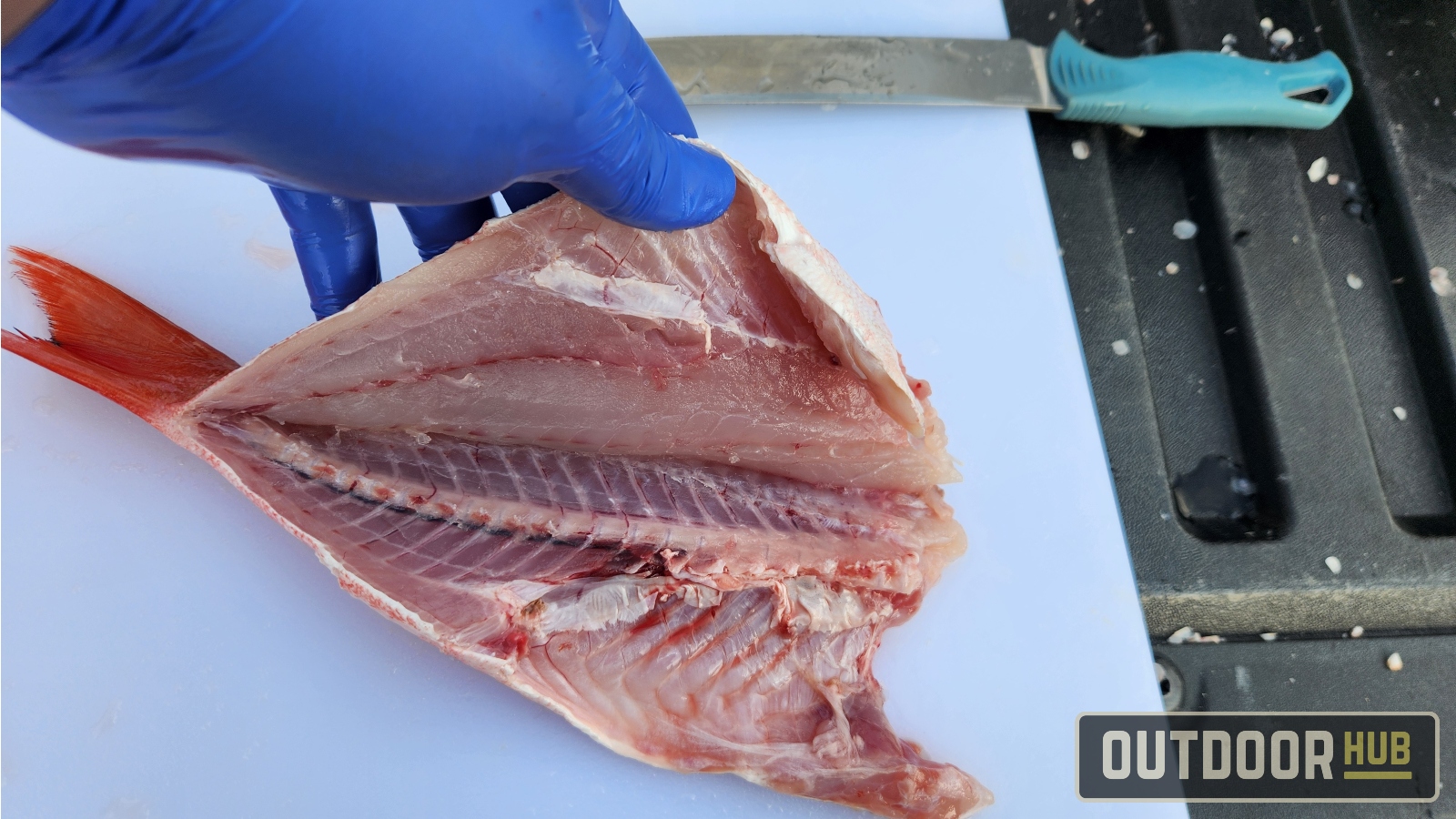
Now on the second side of the vermillion snapper, you are going to do the same thing, again going through the ribcage and pin bones, tracing the spine to the tail.
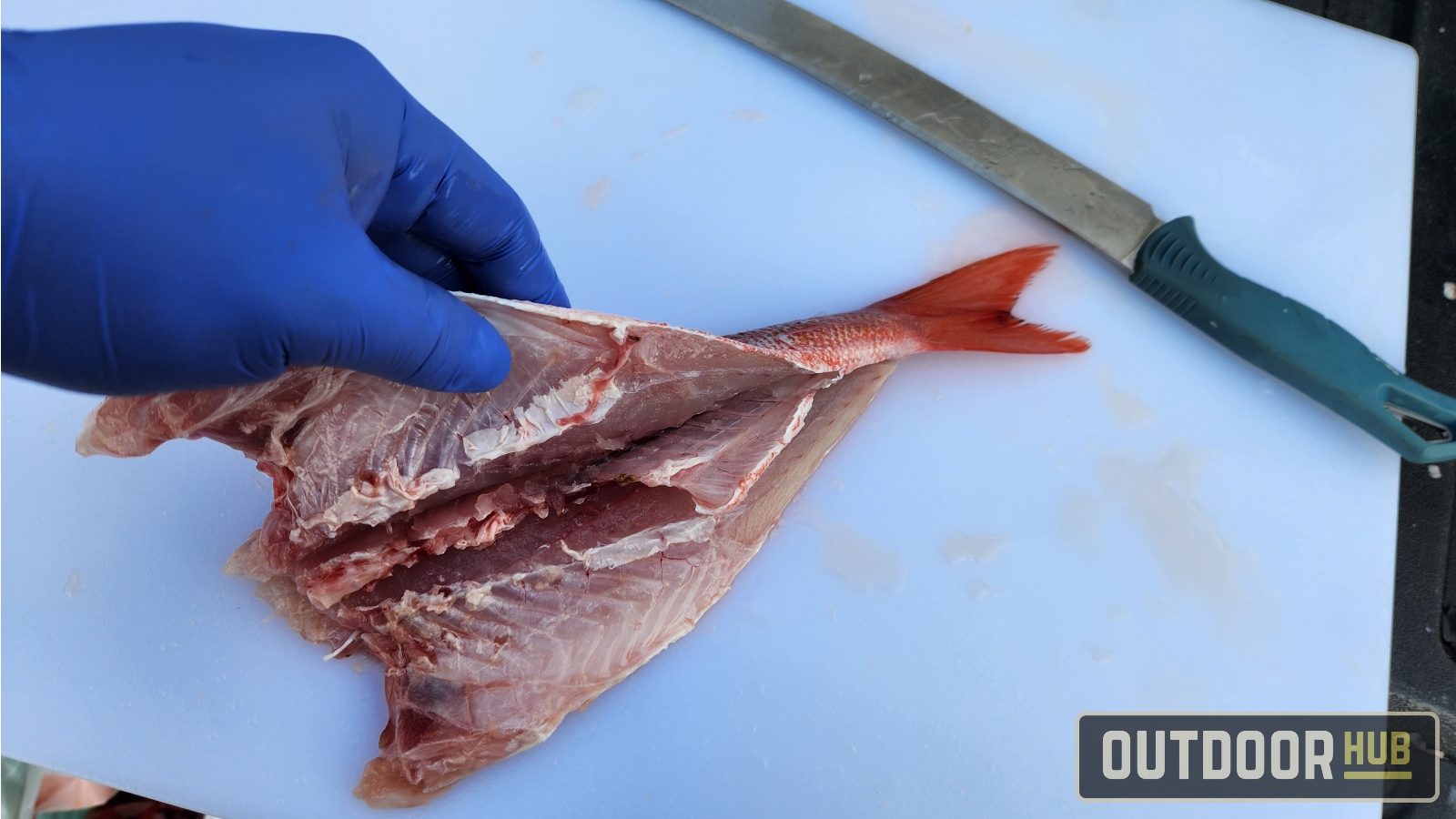
Once you have both sides of the vermillion snapper off the spine, open the snapper up flat with the spine sticking up. Then take a pair of kitchen shears and cut the spine close to the skin of the snapper all the way down to the tail of the snapper. Make sure to not get too close to the skin, it is easy to accidentally cut all the way through. Then at the tail of the snapper, just snip through the spine and remove it.
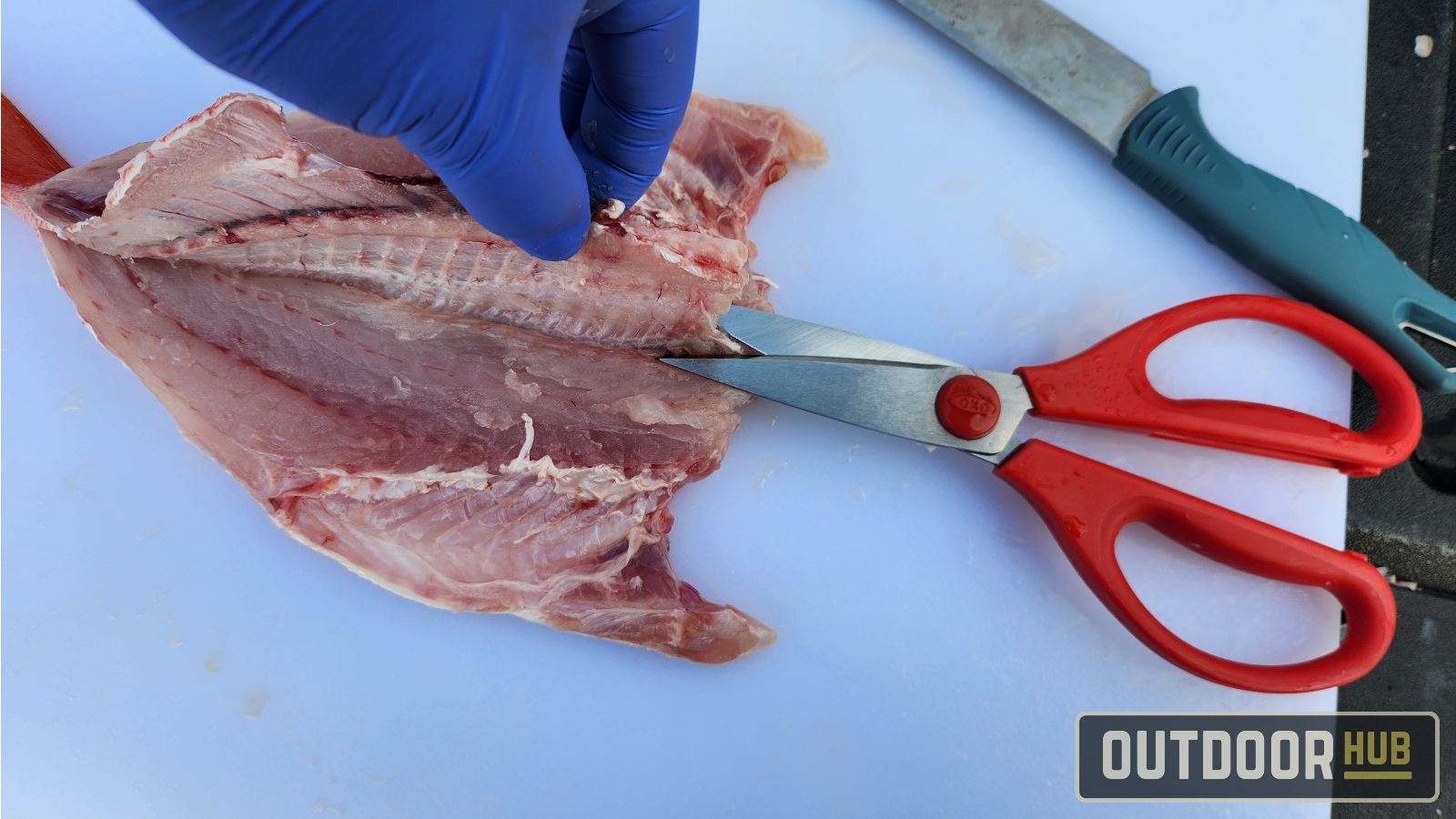
Breaking it Down – Butterflied Fish – Vermillion Snapper
Now you have an almost completed butterflied fish, the next steps are a bit trickier. We are going to remove the ribcage and pin bones to complete butterflying the vermillion snapper.
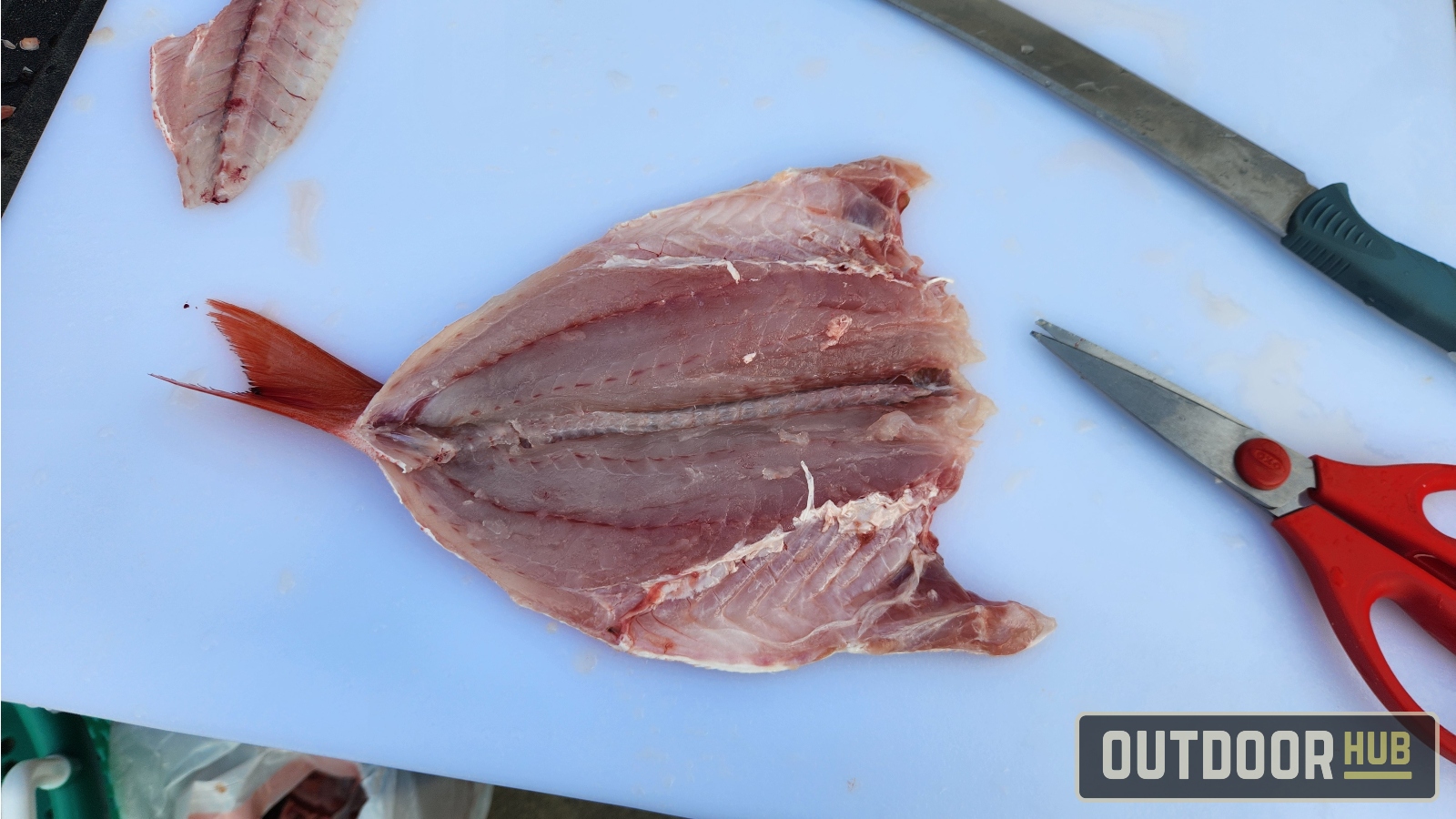
To remove the rib bones, take the tip of your fillet knife and place it under the back bones of the rib cage. Angle your knife slightly tip and edge up, and gently ease the blade forward to let the edge do the work. The knife should glide under the rib bones to help start freeing it off the butterflied fish. Once you have the rib bones start you can flip the knife over and trace along the rib bones to keep cutting and free it from the belly of the fish. The rib bones will end about halfway down the side of the stomach. Repeat this for both sides.
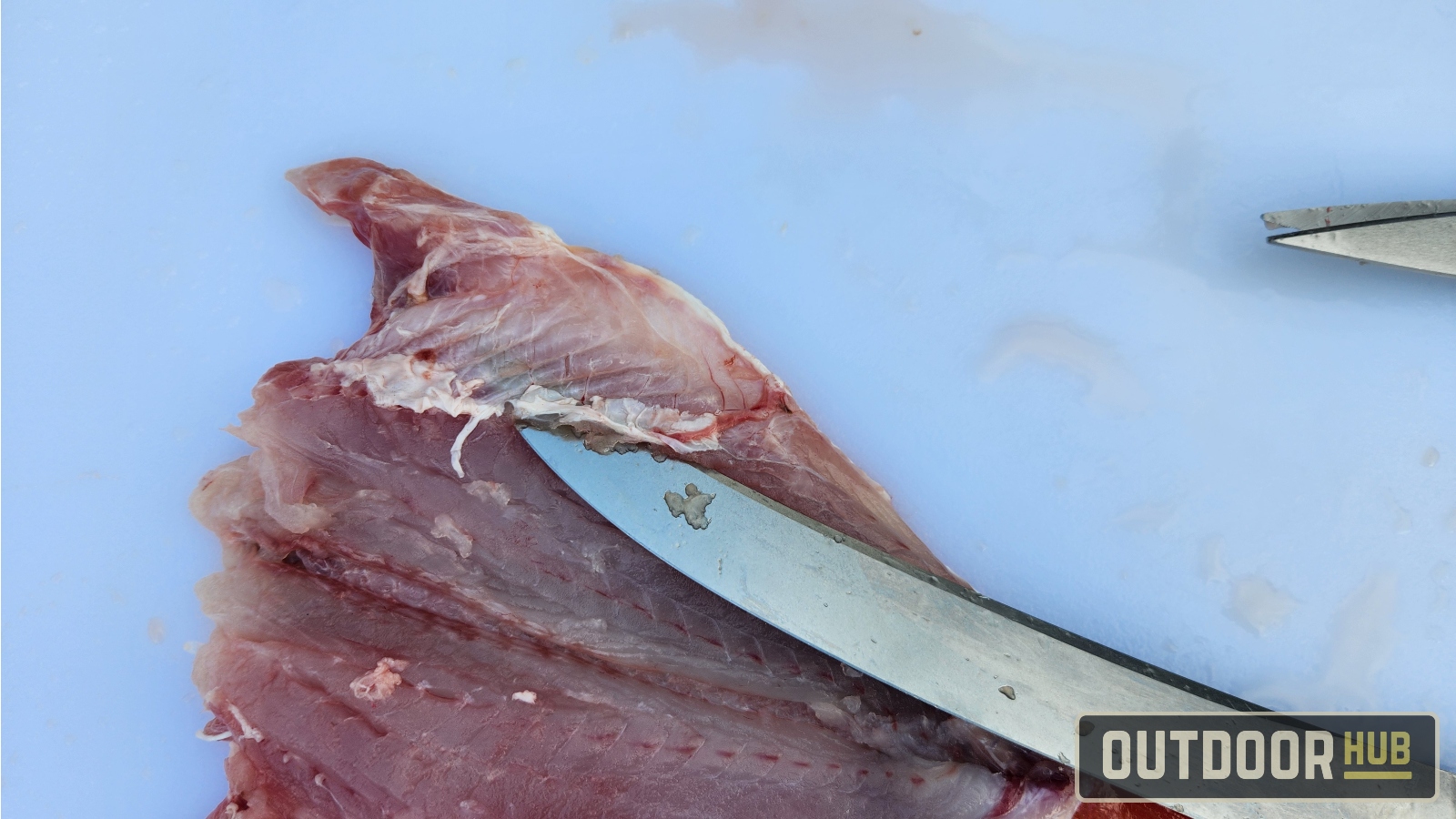
Once you get the rib cage removed from the butterflied vermillion snapper, the only thing left to do is to remove the pin bones. This can be a bit difficult without the right tool, you want a pair of fishbone tweezers. Or in a pinch some clean needle nose pliers. Because we don’t want to cut through the skin of the vermillion snapper you want to carefully pull the pin bones out of the fish. Use your fingers to locate the bones, then take the tweezers to grab the exposed tip of the bones, then take your fingers and gently press on the meat near the bones. With the tweezers pull out the bone towards the direction of the head of the fish. If you think this is gonna be too difficult don’t worry, you can skip this step. But just let anyone know whose gonna eat the fish there are a few bones left.
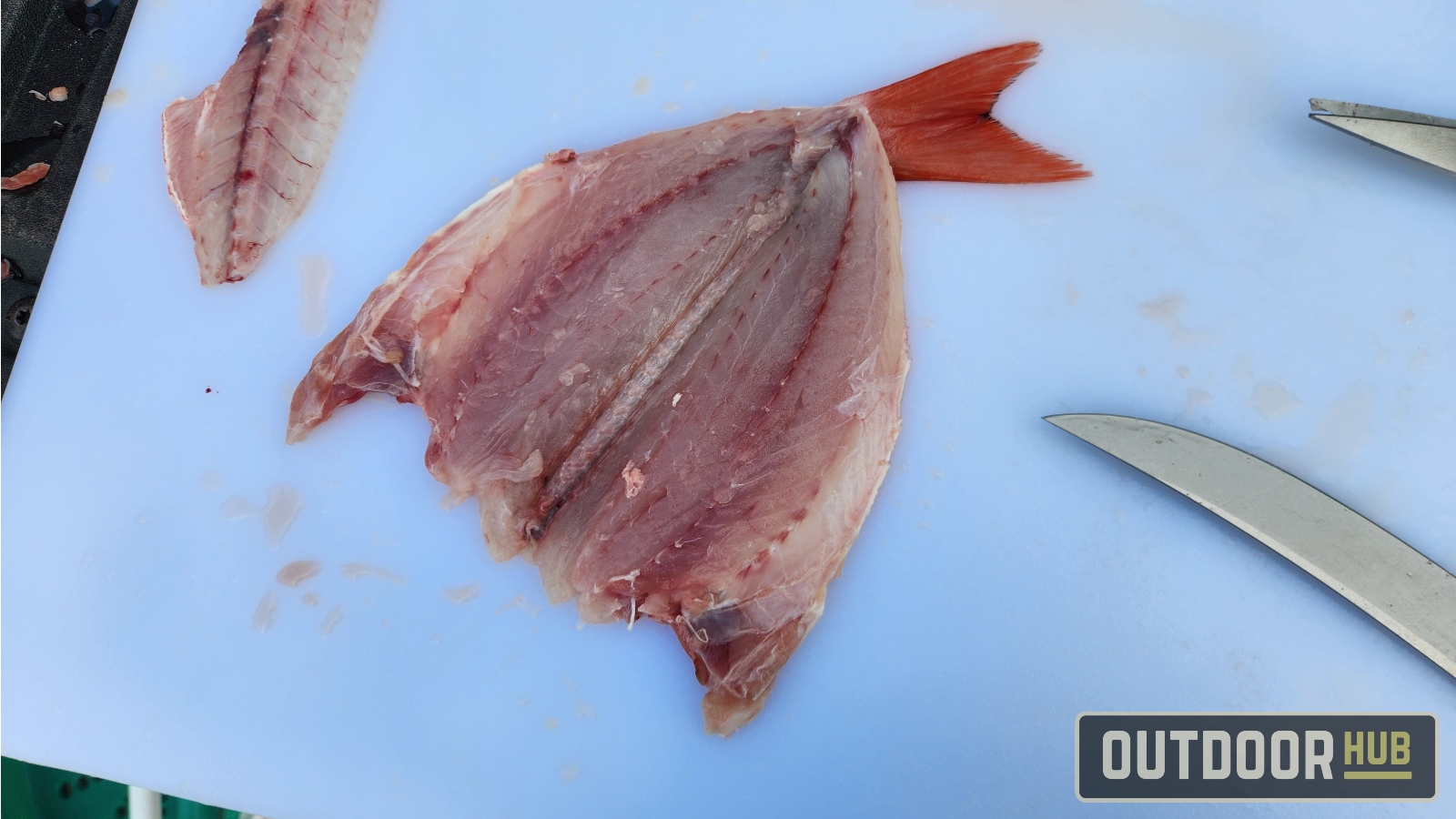
Now that you have an almost boneless butterflied fish, the collar bones are still attached to the fish, you can cook this in all sorts of ways. You can pan-fry it whole, broil it, or my favorite bake the fish stuffed.

